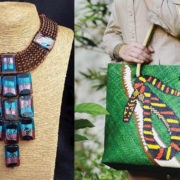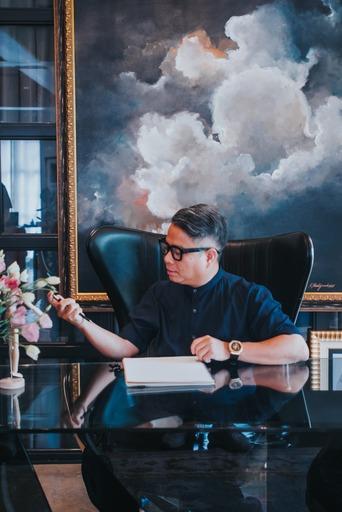Seven Filipino brands, under the group FashionPhilippines, showcased the diversity of materials and outstanding craftsmanship during the Project Womens trade show in Las Vegas this past weekend, August 12 to 14.
The Project Womens participation of Fashion Philippines was organized by the Center for International Trade Expositions and Missions (CITEM), the export promotions arm of the Department of Trade and Industry, in partnership with the Philippine Trade and Investment Center (PTIC) in Los Angeles and San Francisco in California, USA.
Project Womens is one of the 12 trade shows included in the Men’s Apparel Guild in California (MAGIC) trade fair, considered to be the most comprehensive fashion marketplace in the United States. Project Womens features the best emerging and established brands that are noteworthy and cause-oriented.
“What is different with FashionPhilippines’ participation in Project Womens is that the brands joining the show carry so many stories and a lot of potential with them,” said CITEM Executive Director Pauline Suaco-Juan. “We have eight brands and they all use a diverse range of materials in their pieces. They employ weavers, carvers and artisans and these people show exceptional craftsmanship in their products.”
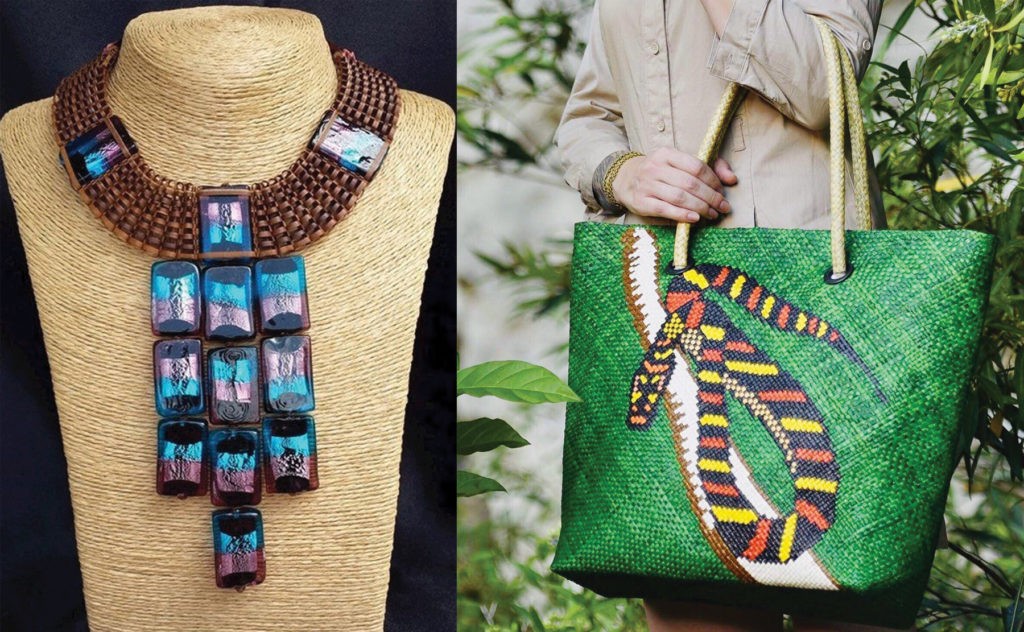
Sourcing from nature
Two brands that joined Project Womens this year make notable use of what nature gives their hometowns in abundance. Agsam Fern makes use of the wild fern plant agsam, which grows abundantly in its home base of Surigao del Sur, to create accessories that are intricate in design and detail.
Lara, an initiative of the provincial government of Samar, makes use of tikog grass that grows abundantly in the province to turn the humble banig into high-end fashion pieces that are sturdy and long-lasting.
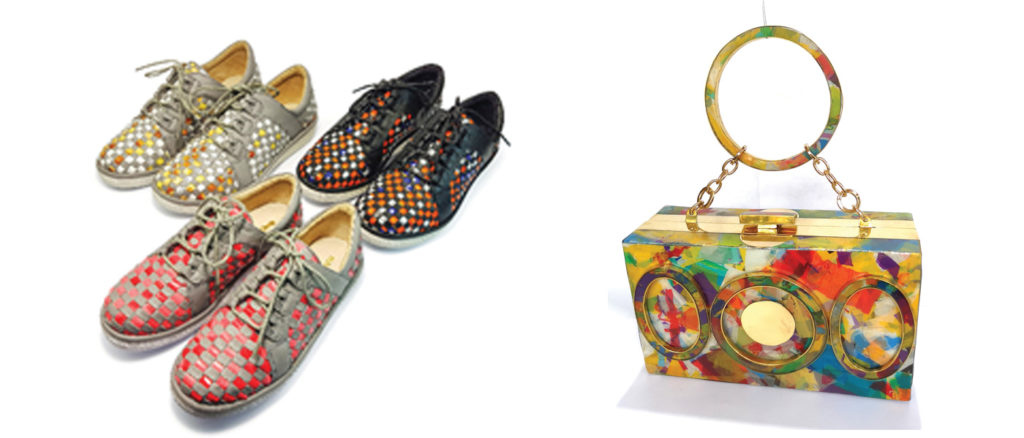
Making something new out of discarded items
Lalapatos by Maco Custodio and Virtucio use foil packs and plastic—two items that would normally be thrown away after just one use—in their shoes and handbags, respectively. Lalapatos uses foil packs from pre-consumed items that are turned into strips and woven together by hand before combining them with leather panels. Virtucio, on the other hand, collects single-use plastic bags that are cut, pressed and then melted to achieve a colorful, mosaic-like effect on its products.
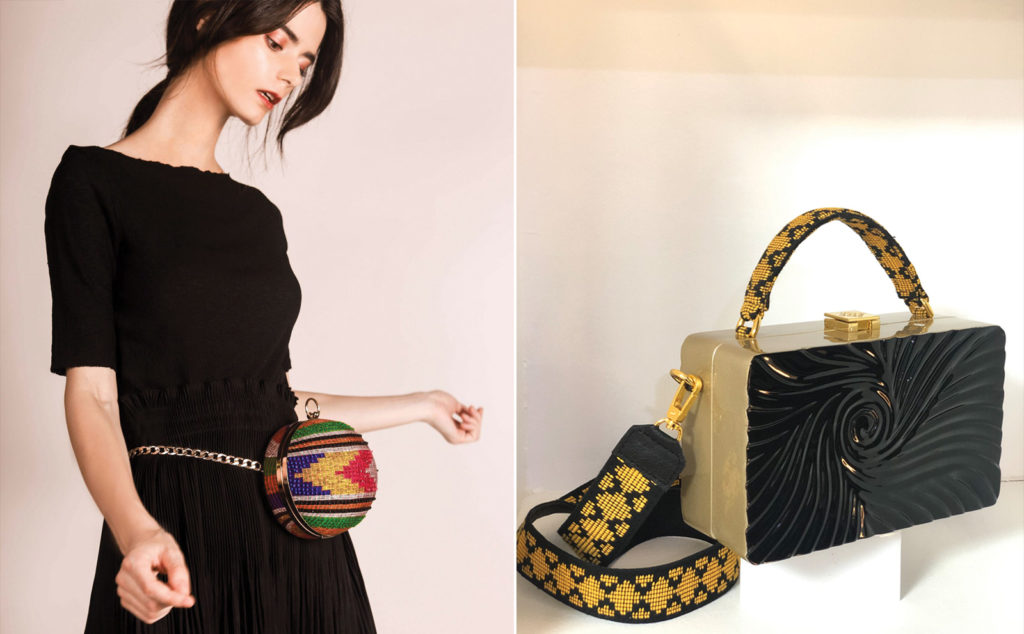
Giving meaning to their hands’ work
Many the brands’ designers and owners work with communities of weavers, artisans and craftsmen to execute their designs and craft delightful pieces. Vesti works with indigenous tribes from Mindanao, taking inspiration from their weaving heritage and combines their weaves with modern silhouettes to make one-of-a-kind bags that can be used during any occasion.
Calli’s bags feature textures and shapes that are carved masterfully by local carvers and artisans from wood, paired with other accents such as hand-woven rattan.
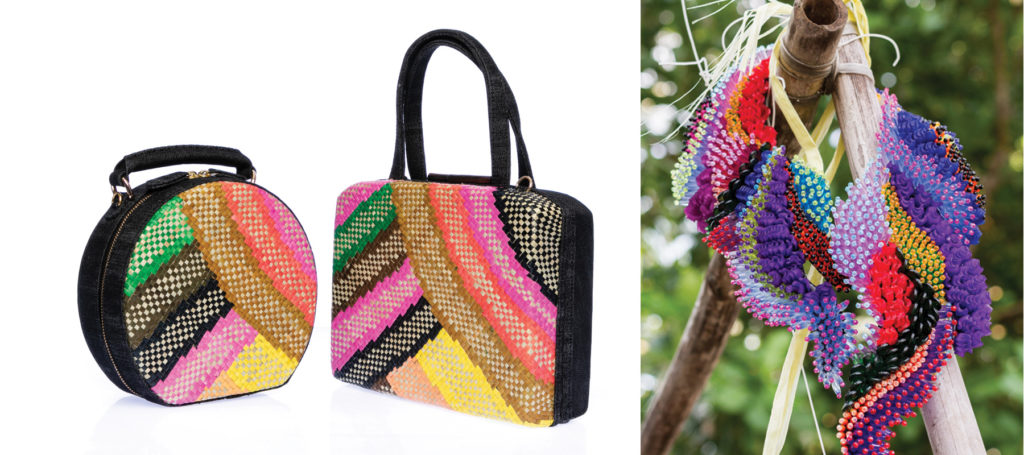
Attention to detail
From simple to elaborate, the Philippine brands at the Project Womens showed precise attention to detail in its products. Beatriz and Ken Samudio make accessories that illustrate their artisans’ capacity for executing intricate designs using a variety of materials such as cotton threads, natural fibers and upcycled beads from glass and plastic.
PH seeks P2.53M revenue in its first participation
The Philippine participation aimed to achieve P2.53 million in revenue and U.S.$790,000 in export sales at Project Womens this year along with 240 buyer inquiries.
With 51,000 buyers from 122 countries visiting the MAGIC trade show in August 2018, CITEM was optimistic that FashionPhilippines would capture a market on the strength of its products’ appeal and quality. Buyers come from all over the United States and other countries such as the United Kingdom, Japan, Canada, Mexico and Colombia.


